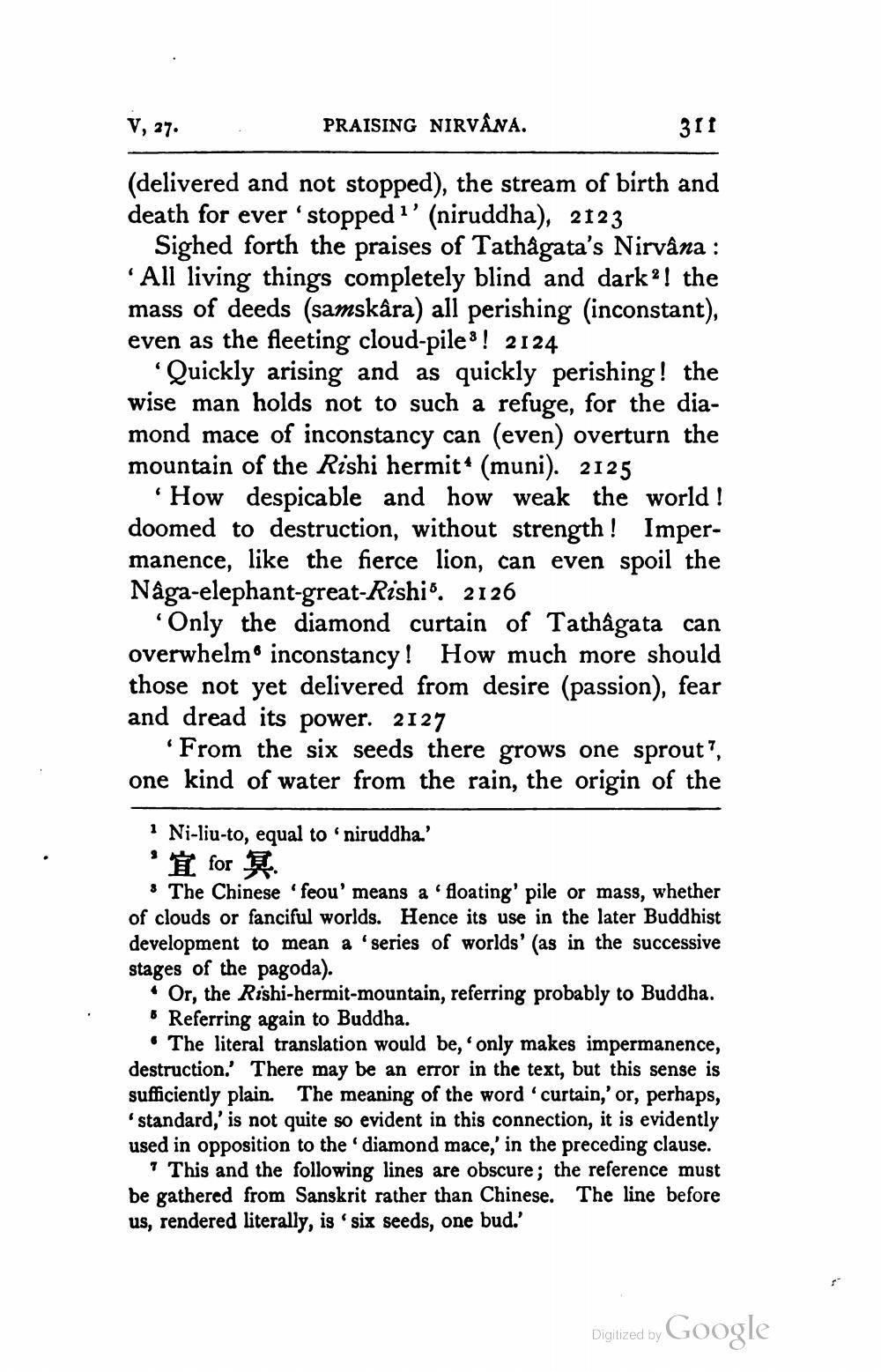________________
V, 27.
PRAISING NIRVÅNA.
311
(delivered and not stopped), the stream of birth and death for ever stopped 1' (niruddha), 2123
Sighed forth the praises of Tathågata's Nirvana : All living things completely blind and dark?! the mass of deeds (samskâra) all perishing (inconstant), even as the fleeting cloud-pile8 ! 2124
Quickly arising and as quickly perishing! the wise man holds not to such a refuge, for the diamond mace of inconstancy can (even) overturn the mountain of the Rishi hermit* (muni). 2125
How despicable and how weak the world! doomed to destruction, without strength! Impermanence, like the fierce lion, can even spoil the Nâga-elephant-great-Rishi®. 2126
'Only the diamond curtain of Tathagata can overwhelm inconstancy! How much more should those not yet delivered from desire (passion), fear and dread its power. 2127
*From the six seeds there grows one sprout?, one kind of water from the rain, the origin of the
Ni-liu-to, equal to 'niruddha.'
I for & The Chinese 'feou' means a 'floating' pile or mass, whether of clouds or fanciful worlds. Hence its use in the later Buddhist development to mean a 'series of worlds' (as in the successive stages of the pagoda).
. Or, the Rishi-hermit-mountain, referring probably to Buddha. * Referring again to Buddha.
. The literal translation would be, only makes impermanence, destruction. There may be an error in the text, but this sense is sufficiently plain. The meaning of the word 'curtain,'or, perhaps,
standard,' is not quite so evident in this connection, it is evidently used in opposition to the diamond mace,' in the preceding clause.
This and the following lines are obscure; the reference must be gathered from Sanskrit rather than Chinese. The line before us, rendered literally, is 'six seeds, one bud.'
Digitized by Google




